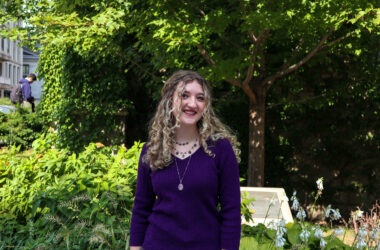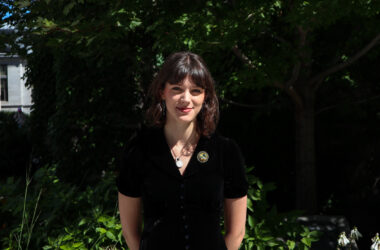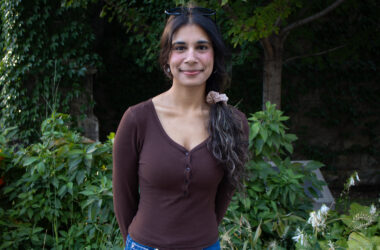The worst insult I ever received was at a parent-teacher conference. My third-grade teacher joked that I was “very serious” about school. I would have preferred it if she failed me.
Taking something seriously was, to me, horrifying. It was an insurmountably embarrassing hallmark of someone uncool, someone self-important who lacked the airy and ironic character that makes people likable. As such, I was determined to rid myself of this distasteful habit.
As it turns out, I’m still bad at this. When I applied to be Editor-in-Chief of The Tribune, I came to my three-hour interview armed with a 42-page editorial plan; I told my friends I had a couple of bullet points.
Fabienne de Cartier, on the other hand, brought 73 pages, unflinchingly.
Fabienne was a journalist, an essayist, a poet, an athlete, an artist, and a friend. Though I did not know her for very long, she had an exceptional talent for slipping past the perimeter people keep around themselves.
The first time we spoke was at a party. I had been crying about something so important I’ve now forgotten, and Fabienne pulled me aside, sat me down on the couch, and listened to me for hours until she was certain I was okay. She didn’t have to take me seriously, but she did—that was just how she was. She did nothing half-heartedly, and her care always reached far and ardently towards those around her. From then on, she always offered a warm smile across the newsroom, and it made me a little braver.
I came to understand seriousness differently because of Fabienne. I used to see it as something rigid and cold, but the way she sailed through the world rewrote that. Her seriousness wasn’t heavy or joyless. It was resilient, but never stiff. It was intensity in its warmest form, born out of love and care and humility.
Fabienne’s seriousness manifested in the care she brought to her writing and the thought she poured into our paper. She covered stories others were afraid to—Palestine mobilization at McGill, the Mohawk Mothers case, campus unions, and trans healthcare—with a kind of grace and thoughtfulness that eludes most journalists.
Her seriousness showed in her journalistic rigour, but also in her joy. It shone in how she talked about her aunt and uncle’s puppet show, lighting up with excitement, until I—someone quite uneasy around puppets—found myself excited too. It showed when she married her long-time partner, committing with love and devotion, because anything worth doing is worth doing wholly. And that is what Fabienne taught me: That seriousness, when best executed, is an act of love. That having something or someone you care about enough to take seriously is not something to be embarrassed by—it’s something to be proud of. It is the coolest thing a person can have, and one of the surest marks of a life well-lived.
Fabienne passed away three weeks ago after a long and unfair battle with cancer. I grieve the conversations we’ll never have and the edits we’ll never make side-by-side. The loss is immeasurable and devastating, and there is no beauty to be found in it that wouldn’t be outweighed by the beauty of having her around. Still, I search for it—mostly in her 73 pages.
What I’ve found in these notes is the tireless call to take our work seriously: To make the nitpicky, meticulous edits; to spend the extra hour perfecting our drawings; to call ourselves journalists without the student in front. They show me that the seriousness we put into our craft, whatever our craft may be, can grant us a kind of immortality. In that way, Fabienne is still here. By giving her best to everything she loved, she left a piece of herself behind that no cancer, no death, and no passage of time can ever take away.
Now, when I catch myself in the scary act of taking something seriously, I feel her warm smile from across the newsroom once again, dazzling as ever. And it makes me a little braver.
Donations to the Fabienne de Cartier Poetry Award can be made at fabiennedecartier.com.









